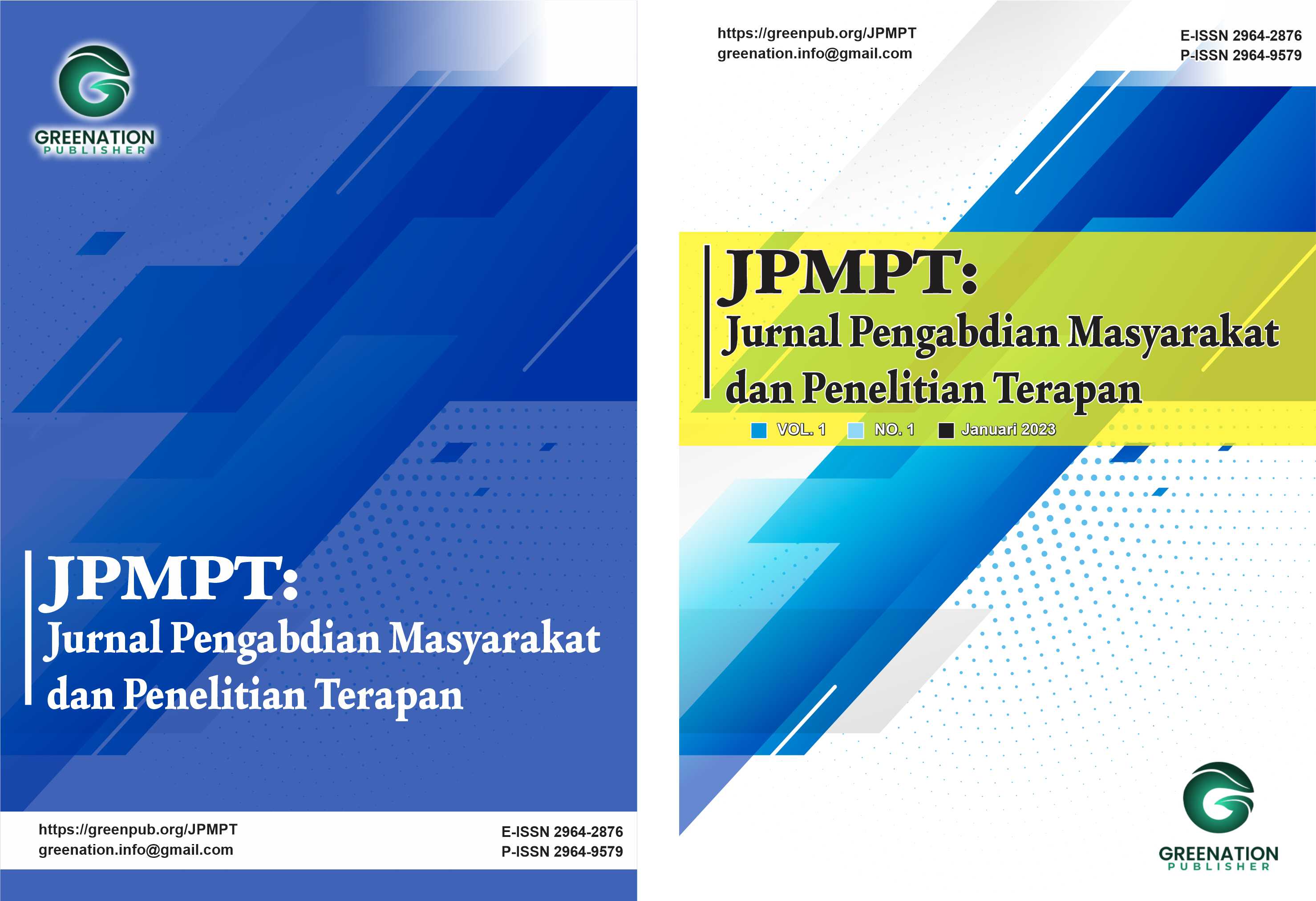Introduction to the Application of Kaizen Principles in the World of Work, For the Students of SMK.N 43 Jakarta
DOI:
https://doi.org/10.38035/jpmpt.v2i1.489Keywords:
Kaizen Service Community, Continues ImprovementAbstract
The purpose of this activity is to provide an introduction to the application of Kaizen principles in the world of work for the students of SMK.N 43 Jakarta. This activity is part of an effort to introduce the concept of continuous improvement to students because the Kaizen principle has great relevance in the context of the ever-changing modern world of work as well as in the daily lives of students. The activity was carried out directly at SMK.N 43, on Wednesday 7 February 2024 through the provision of basic Kaizen knowledge, case examples, video screenings, games and interactive discussions. The activity was attended by 40 people, consisting of 35 students, 4 ITL Trisakti Team Lecturers, and 1 student. From the results of the interview, it is known that the partner's problem is the desire to increase students' knowledge of the principles that apply in the world of work. Based on the results of the analysis of the pre-test and post-test, each of which consists of 10 indicators, it is found that there is an increase in participant understanding between 22% to 101%, with an average increase in understanding of 63.1% for each indicator.
References
Fitriani. (2018). SIKLUS PDCA DAN FILOSOFI KAIZEN Fitriani 1. ManajemenPendidikan Islam, 7(1), 625–640.
Kaizen Institut. (2024). Metodologi KAIZENTM? dalam Pendidikan: Mendorong Perbaikan Berkelanjutan di Lingkungan Sekolah. Kaizen Institut. https://kaizen.com/insights/kaizen-methodology-education/
Lesmini, L., Rizaldy, W., & Chaerudin, I. (2022). Pengenalan Prinsip Kaizen Dan Penanganan Barang Berbahaya(Dangerous Goods) pada PT. Kereta Api Logistik (KALOG). Jurnal Abdimas Transportasi Dan Logistik, 2(1), 22–29.
Manurung, H., Sukma, D. I., & Fahturizal, I. M. (2021). Implementasi Metode Kaizen di Berbagai Industri?: Kajian Literatur Sistematis Abstrak. Prosiding Seminar Nasional Mercu Buana Conference on Industrial Engineering, 3, 28–37.
Ningrum, Y. U. (2023). Penerapan Teknik Kaizen Berbantuan Arena Numbers Game Untuk Meningkatkan Kemampuan Numerasi Siswa Sd Negeri Banjarharjo. Jurnal Muara Pendidikan, 8(1), 40–49. https://doi.org/10.52060/mp.v8i1.1182
Nugroho, R. (2013). PROSES PERBAIKAN BERKELANJUTAN DALAM MEWUJUDKAN SEKOLAH UNGGUL DI SMK NEGERI 3 PATI (Suatu kajian teoritis). Jurnal Pendidikan Ilmu Sosial, 23(1), 42–58.
Roofii, Mohammad, Mochamad Ilham Akbar, agung N. R. S. (2023). PENDEKATAN KAIZEN DALAM PERBAIKAN MUTU PENDIDIKAN. Al Ulya: Jurnal Pendidikan Islam, 7(2), 112–127. https://doi.org/10.36840/ulya.v7i2.644
Rusdi. (2018). Continues Improvement Sebagai Upaya Dalam Meningkatkan Mutu Pendidikan Pedesaan. Al-Tanzim?: Jurnal Manajemen Pendidikan Islam, 2(2), 150–160. https://doi.org/10.33650/al-tanzim.v2i2.396
Sadina, I. D., Ramadani, A. P., Sembiring, P. D., Darma, W. S., Sidauruk, A., & Barus, S. B. (2021). Implementasi Budaya Kewarganegaraan KAIZEN pada Kehidupan Sosial di Jurusan Pendidikan Pancasila dan Kewarganegaraan Implementation of KAIZEN Citizenship Culture in Social Life in the Department of Pancasila and Citizenship Education. Jotka Journal in Education, 1(1), 1–5.
Santosa, Budi, Purnawan, Muhammad Sayuti, P. B. (2021). Buku Panduan membangun karakter melalui Kaizen. Universitas ahmad Dahlan.
Wijayati, Primardiana Hermilia, S. & S. (2013). MODEL EVALUASI PEMBELAJARAN BERBASIS KAIZEN DI SEKOLAH MENENGAH ATAS. Jurnal Penelitian Dan Evaluasi Pendidikan, 17(2), 318–332. https://journal.uny.ac.id/index.php/jpep/article/view/1364/1133
Downloads
Published
Issue
Section
License
Copyright (c) 2024 Lis Lesmini, Vica Nurhayani, Tri Mulyani Setyowati, Dian Anom Baskoro, Krisman Damanik

This work is licensed under a Creative Commons Attribution 4.0 International License.
Hak cipta :
Penulis yang mempublikasikan manuskripnya di jurnal ini menyetujui ketentuan berikut:
- Hak cipta pada setiap artikel adalah milik penulis.
- Penulis mengakui bahwa Jurnal Pengabdian Masyarakat dan Penelitian Terapan (JPMPT) berhak menjadi yang pertama menerbitkan dengan lisensi Creative Commons Attribution 4.0 International (Attribution 4.0 International CC BY 4.0) .
- Penulis dapat mengirimkan artikel secara terpisah, mengatur distribusi non-eksklusif manuskrip yang telah diterbitkan dalam jurnal ini ke versi lain (misalnya, dikirim ke repositori institusi penulis, publikasi ke dalam buku, dll.), dengan mengakui bahwa manuskrip telah diterbitkan pertama kali di JPMPT.


























